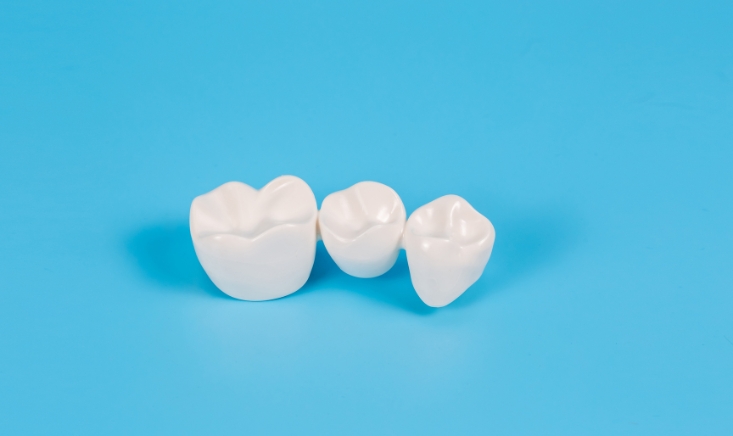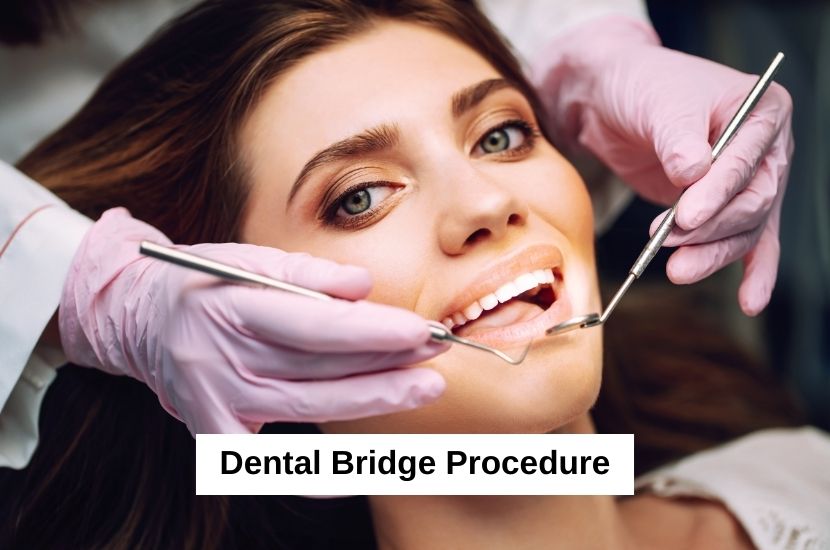1001 W Indiantown Rd, Ste 106, Jupiter, FL 33458
The Role of Dental Bridges in Oral Health

Missing teeth can significantly impact your ability to chew, speak, and smile with confidence. Fortunately, dental bridges provide a reliable solution for filling gaps in your smile. These restorations not only improve appearance but also restore functionality. In this blog, we’ll explore the important role dental bridges play in maintaining and improving oral health.
What Are Dental Bridges?
These are prosthetic devices used to replace one or more missing teeth. They are anchored to surrounding teeth or implants and help fill the gap left by missing teeth. These bridges are designed to restore both the aesthetic and functional aspects of your smile, making them a popular choice for many individuals seeking tooth restoration.
How Do Dental Bridges Work?
A dental bridge works by bridging the gap between two healthy teeth, with the missing tooth being replaced by a prosthetic one. Typically, the two neighboring teeth are reshaped to accommodate crowns, which hold the bridge in place. These crowns support the replacement tooth (or teeth), restoring normal bite function and appearance.
Benefits of Dental Bridges
- Improved Aesthetics
Missing teeth can affect the appearance of your smile. Dental bridges help fill these gaps, giving you a more natural-looking, complete smile. - Restored Functionality
A dental bridge helps restore normal chewing and speaking functions, making it easier to eat and communicate without discomfort. - Prevent Teeth Shifting
When a tooth is lost, the surrounding teeth can shift into the empty space, leading to misalignment. A dental bridge helps prevent this by filling the gap and maintaining proper tooth alignment. - Enhanced Oral Health
These bridges help maintain the integrity of oral health by filling gaps. They also reduce the risk of gum disease and tooth decay that can occur in empty spaces. - Preserved Bone Structure
The absence of teeth can lead to bone loss in the jaw. Bridges help maintain bone density and prevent further deterioration by restoring the natural structure of the mouth.
Types of Dental Bridges
There are several types of bridges, each designed to suit different patient needs:
- Traditional Bridges
These are the most common types. They consist of a false tooth (pontic) held in place by crowns on the adjacent teeth. They are ideal when the neighboring teeth are healthy and strong. - Cantilever Bridges
Cantilever bridges are used when only one adjacent tooth anchors the bridge. This type is less common and typically used in areas with lower bite pressure. - Maryland Bridges
Maryland bridges are bonded to the back of the neighboring teeth using a metal or porcelain framework. These are often used in the front of the mouth, where appearance is more important. - Implant-Supported Bridges
These bridges are supported by dental implants rather than crowns on natural teeth. They are a great option when there are no adjacent healthy teeth to support a traditional bridge.
Caring for Dental Bridges
Proper care and maintenance of your dental bridge are essential for ensuring its longevity and function. Here are some tips to keep in mind:
- Brush and Floss Regularly
Maintaining good oral hygiene is crucial. Brush your teeth at least twice a day, and use a floss threader or interdental brushes to clean around the bridge and between the teeth. - Avoid Hard Foods
While bridges are durable, it’s a good idea to avoid excessively hard or sticky foods that may damage or loosen the bridge. - Regular Dental Check-ups
Routine visits to your dentist are essential to monitor the health of your bridge and surrounding teeth. Your dentist will ensure the bridge remains secure and functional.
Are Dental Bridges Right for You?
Dental bridges are a highly effective solution for replacing missing teeth and restoring oral health. However, it’s essential to consult with your dentist to determine if they are the right choice for your specific needs. Factors such as the condition of the surrounding teeth and your overall oral health will influence the best treatment option for you.
In many cases, these bridges can provide long-lasting results and offer both cosmetic and functional improvements. Whether you’re looking to restore your smile or improve your bite, bridges can play a vital role in achieving optimal oral health.
With their ability to restore missing teeth and improve both appearance and function, dental bridges are a highly valuable option for those seeking a permanent solution to tooth loss. Regular care and professional advice will ensure that your dental bridge continues to enhance your smile and maintain your oral health.



